"Doc"
The story of a young Ukrainian army medic and his family now seeking life-saving medical care in Austria.
Dima and his wife Katya meet me in a central Vienna cake and coffee cafe where the average age customer is roughly 87 on a late winter afternoon. They look so young in this setting. We order cappuccinos, and they begin to tell me their story.
Dima says, firmly, “I’m an army guy so you are going to have to ask me questions. Ask me a question, and I’ll answer.” This is quite a change from my usual interview format. Normally when a woman is sitting in front of me, she starts talking, and continues for an hour, and I only get to interject with questions. Ok, I agree. “Tell me how you ended up in Austria, and why you joined the army.”
Dima and Katya have been together for two years. They married this past May. Katya has two daughters, Anya (14) and Vika (10). In July, the family were evacuated to Austria and supported each step of the way by an incredible, international grassroots organization I only learned about recently: Vienna Mission for Ukraine.
Dima joined the army for the first time in 2014, when he was 19. He grew up in Yasynuvata, Donetsk oblast. He fought on the side of Ukraine since the beginning, and received training as an army medic. Dima has type 1 diabetes. He was diagnosed when he was six months old. This piece of information he somehow managed to hide from the army.
When Russia invaded on February 24, Dima and Katya were living in Kharkiv. The first thing Dima did, without even telling Katya first, was to go volunteer, again. Prior to the war, Dima had worked as a medical masseuse in a rehabilitation center. I ask Katya how she felt when she heard Dima signed back up that day. She gives one of those shy smiles like ‘what can you do?’ and clearly wasn’t surprised — she wouldn’t have expected anything else from him. Dima explains the army needed medics like him with first aid training and experience treating injuries in the field.
In mid April, Dima was on patrol in the northern Saltivka, an area of Kharkiv which was pummelled on a daily basis by Russia. During one rescue, he suffered a contusion (shell-shock) after his group was shot at. Dima’s health bean to deteriorate. He was admitted to a Kharkiv hospital, which told him his kidneys were in bad shape (by this point Dima’s diabetes was no longer a secret to the army), and he was then transferred to a military hospital in Kyiv. Dima was released from the army, and was explicitly told he cannot sign up to serve anymore.
Through his work as a medic, Dima was in contact with Vienna Mission for Ukraine, which was running vans and sending medical and other humanitarian supplies to Ukraine. They would drive supplies to Lviv and they were then sent by Nova Poshta to Kharkiv. The doctors in Ukraine told Dima his kidneys had both lost 80% of their functionality. He was in need of serious medical care. He would need, in an ideal world, a kidney and pancreas transplant. One of the volunteers from VM4U convinced Dima and Katya to come to Austria and seek treatment. He promised to help them with everything. Dima and Katya make it very clear they otherwise had no intention of leaving Ukraine. But the team convinced them Dima would have a chance for an operation in Austria.
In July, the family of four traveled to Austria, along with their cat, Stepan. The VM4U team helped find them an apartment in a central Vienna district, and the girls were enrolled in local schools. The volunteers helped furnish the apartment. It was donated by a generous owner and the family only have to pay for utilities. Katya warned the teachers the girls didn’t speak a word of German. The volunteers helped book medical appointments to get Dima evaluated within the Austrian healthcare system, and translate for him during those appointments. Neither of the adults speak English or German. Only a tiny bit.
When the war broke out, the family was in their apartment in Kharkiv oblast. They stayed in the apartment. They didn’t run to the cellar, not once. They tried to keep the girls as calm as possible. Katya recalls lining up to buy food for three or four hours. Trucks would pull up in the middle of air raid sirens and attacks. I asked who was selling the food. “Crazy traders kept doing business.” Katya stayed at home for about ten days before concluding “you have to live” and starting to go about their routines again. Sometimes they waited hours in line just to buy bread. I ask about friends. Many left: Poland, German, Netherlands, even the U.S. Some have since returned. One friend came back to Kharkiv a month ago because “there is no place like home”.
Katya’s mom stayed in Kharkiv the entire time, too. Her sister, now the proud mother of a six month-old baby, at first evacuated to western Ukraine while she was pregnant with her husband. But one month before the birth, she insisted on going back to Kharkiv. The maternity hospitals are working, albeit with wards and bomb-shelters set up the cellars. Katya comes from a family which worked in the police force. Leaving wasn’t really an option or on the cards for any of them.
I ask about February 24. Did they expect the invasion? Katya says no, she didn’t want to believe it could be possible. Dima nods, quietly, says he knew about a month ahead of time. “The war never really finished.” Dima’s hometown was occupied by the Russians during the first invasion, and he had fled with his parents before the Russians came. They left with a few days to spare. I ask about Dima’s parents. His mother died in Kharkiv; his father now lives in Dnipro a new partner.
Dima is one of five brothers. I ask about them. Their biographies read like a modern history of Ukraine itself.
One brother is still stuck in the DNR (occupied Donetsk region) with no papers and no way to leave. He also has diabetes, and as far as Dima knows, has not yet been taken into the army.
Another brother lives in Russia. He moved years ago for his job and is a specialist in his field and therefore believes he will be protected from the draft as a key employee in a commercial operation. He has a Russian wife, family, and is well integrated. He still has contact to his family in Ukraine.
The Russia situation I imagine is one that happens more than we think — you moved years ago, you built a life, you likely don’t agree with what is happening, but you don’t want to blow up the life you built. I know such a Ukrainian from Kharkiv who has lived in Moscow for decades. Yes, he helped evacuate his relatives to Europe. No, he did not leave Russia. Nothing is as black and white as it seems at first glance.
A third brother is also a trained medic, and is in Ukraine but laying low in a village. He has a wife and a young child. He is worried about mobilization. Dima tells me they are issuing men draft orders on the streets in Ukraine now. Certainly to those with needed professions.
I am surprised to hear this as I haven’t read anything about it in the press, although that could also be for a reason. Another woman I interview the next day confirms this. Her friend in a central Ukrainian village explained traffic police stopped all the cars on a small local bridge the other day, and handed draft papers to all the men within age they stopped.
A fourth brother is working in Poland. He is trying to earn money and sends funds back to support the Ukrainian army.
Somehow the conversation gets on the topic of PTSD. Dima explains, “when I am with my family, I am me, I am myself, I am with them, but when I am alone, in my head, I am different. I am not the same. You feel really comfortable when you are in the army with your guys, your familiar group.”
Katya shows me her hands. They are noticeably shaking as she talks. “I was calmer there, in Ukraine,” she explains. “Everything here is foreign and unfamiliar. I worry being so far away from my relatives.”
Dima explains, “you either move on, mentally, or not. And if you don’t, you get sick.”
“They cannot understand what we lived through. It is good they do not know,” Katya adds, referring to local people living in Austria.
I look around the cafe, the colourful macaroons under the glass, the glorious Viennese cakes, the privileged pensioners enjoying afternoon coffees, and agree that of course, most people here cannot possible understand what you all have been through.
Dima recalls when he was in hospital last April, one officer came in and exclaimed, “who the heck took you into the army with all your sicknesses?!” There are 100 soldiers in a company. In Dima’s company, there were 4 medics, at least on paper, but Dima was the only one with any field experience and any idea what to do. So, the army actually really needed him. Dima is trained in MARCH, the American system for tactical medicine. It was his job to teach the others. He knows this work helped many to survive as the group was treating victims of shootings and missile attacks in Kharkiv. Dima knows, despite his poor health, he made a big impact.
He talks about what it is like in the army. “The first month, everyone is full of adrenaline. After three months, you are all tired. Now it has been nearly a year, and there is no end in sight.” Katya nods along and I understand this is true for the civilian population too, especially for those who never left Ukraine. “A rocket landed just next to our building” she says nonchalantly.
Dima again expresses his gratitude to the team of volunteers who brought his family to Austria and set up their lives here for them. He knows much of civilian life in Ukraine and much of refugee survival in Europe now is being held up by unseen teams of tireless volunteers. Katya adds “Europe didn’t need us Ukrainians coming here.” She says she sometimes feel like they are looked upon as “third class” citizens. Really, I ask? She tells me of a time at a doctor’s office. Another Ukrainian woman complained about something, and the Austrian receptionist said bluntly, “If you don’t like it, you can go home” to which the Ukrainian replied, “You go, you have a look what we lived through.”
I ask about the bureaucratic side of life in Vienna. They too go to ACV once every three months for payments. But for example, in July they received money for two months, but their next appointment wasn’t until October. “The system expects us to be able to pre-fund our existence, manage however you want…” In October, they received money for September, October, and November, but the next appointment was given only in four months. The family use the social payments to help pay the utility bill (around €200 per month). The landlord generously only rents the apartment for what the state reimburses (just over €300 per month).
I ask how the girls are doing. It is hard for them. No one wanted to leave Ukraine. But they are in “Ukrainian” classes in local schools. They are trying. It is not clear what kind of education Anya, the older daughter, will pursue once she no longer has to attend school in Austria. I ask about next year (15) and there is no fixed plan yet. The kids had two years of covid lockdowns and online school off and on, and now war, and now a new language and a new country.
Dima is waiting for a kidney and pancreas transplant which he hopes to have at the end of 2023 in Innsbruck. So the family has a specific goal and they are working towards it, with the help of this team of volunteers. Dima knows how lucky he is. He would never have access to these top surgeons in their field if not for VM4U. He would like to be more busy. He occasionally gives massages for a little extra income. The volunteers helped bring a message bed to the apartment. He invites me. I say I should send my husband — bad back. Dima explains everyone can benefit from massages, even babies. Reminds me of Moscow. That was a whole industry back in the day. I nod, explaining baby massages aren’t so mainstream in the west.
Dima gets tired easily. He shows me his hands: his fingers are puffy and swollen. His right eye isn’t working properly ever since he had a bout of covid in September. I don’t ask his age, but if he volunteered in 2014 at 19, he looks older than his years. With the wisdom to accompany.
I thank Dima and Katya for their candour and their time. I wish them good luck. I really enjoyed meeting them and speaking with them. No bullshit, total honesty. Real Ukrainian patriots. They didn’t ask for any of this. It happened to them.
The next day, purely by coincidence on the recommendation of a Ukrainian refugee (also a young man with diabetes who knows Dima too) who helps me administer my Telegram group, I met Adam for coffee right across from the Vienna State Opera which was getting all dressed up for the Opera Ball that night.
Adam is running Vienna Mission for Ukraine with a large group of international volunteers from a range of nationalities. I sit in awe as he describes everything they have been doing since day one when they arrived at the Ukrainian church in central Vienna and said “what do you all need?” to which the Ukrainians said “vans!” so Adam and his crew went out and rented a bunch of vans and filled them up with diesel and began driving supplies to Ukraine and bringing people back. That very day. They have since expanded into a wide range of activities, both helping in Ukraine and helping Ukrainians living in Austria. They are supporting a store providing clothing and household goods, they are supporting soccer classes and music lessons for Ukrainian kids, they are still driving to Ukraine and back for special deliveries and working with other Ukrainian organizations purely focused on delivering specific types of aid (i.e. medicine).
I tell Adam how Dima made me promise six times to refer to the volunteers who helped them. I mention Stepan, the hairless cat. Adam smiles. They have several families with challenging circumstances they are helping. They seem to be masters of challenging logistics, moving furniture around and gathering large-scale really useful donations — really incredible. We agree to stay in touch and work together where we can. His team seems to have everything I don’t: people, structure, multitasking, great logistics, great org ops. Professionals. I was really, really impressed. We talked about burn out. It is real and you have to give yourselves breaks. Note to self, haha.
A little update: thank you so much for all of your generous donations, I was able to deliver cards to all 30 of the envelopes in my recent pile, and it has now built itself up again to a hopefully “manageable” 13 families waiting. Our website waiting list is of course another story. It’s still huge.
A mom wrote me from Linz this morning. Her daughter was treated for cancer. It is hopefully now in remission, but they are exhausted, she writes, physically, emotionally. More parents write from the arrival center. I shuffle the envelopes and try to prioritise who should receive first. I don’t like making such decisions, but I know they are necessary. I received so many grocery photos yesterday! Such a relief. Thank you all so much.
Two pieces of recommended reading, the first of which requires a trigger warning.
Inside the Basement Where an Entire Ukrainian Village Spent a Harrowing Month in Captivity (Time cover story reported by a Ukrainian and also published in Ukrainian)
In Bleak Russian Cemetery, Sea of Crosses Signals War’s True Toll (incredible reporting from Russia by Valerie Hopkins of NYT)


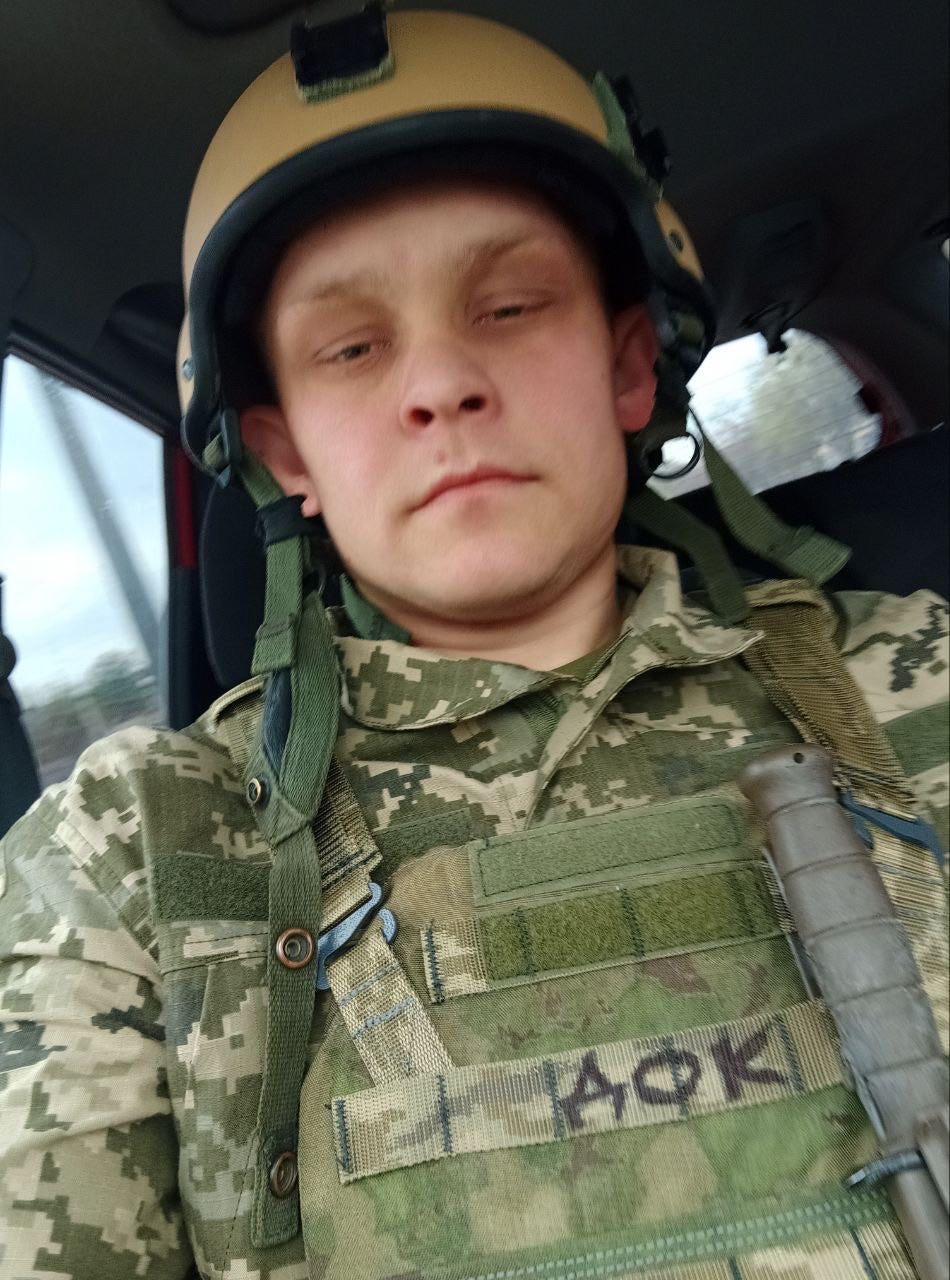
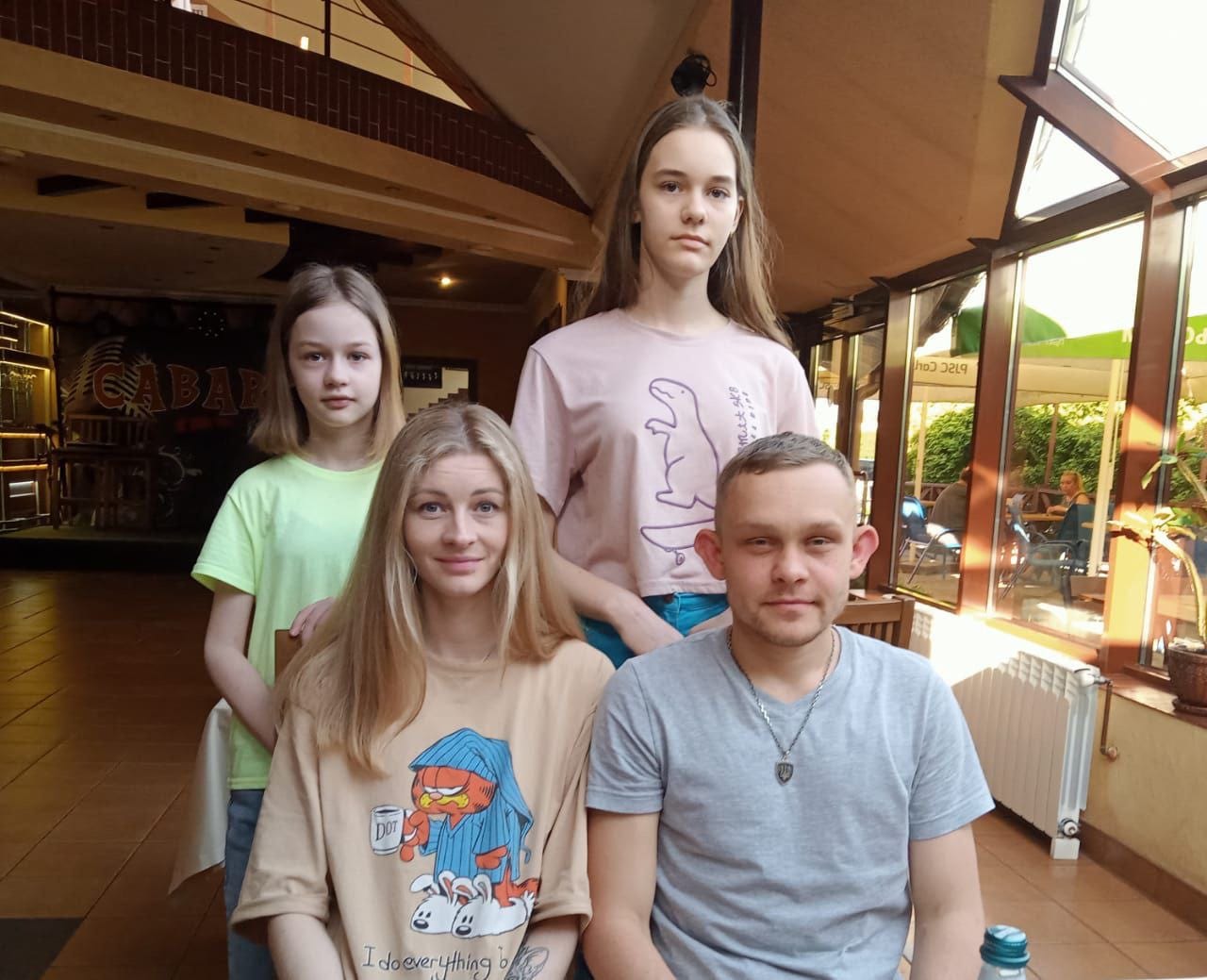
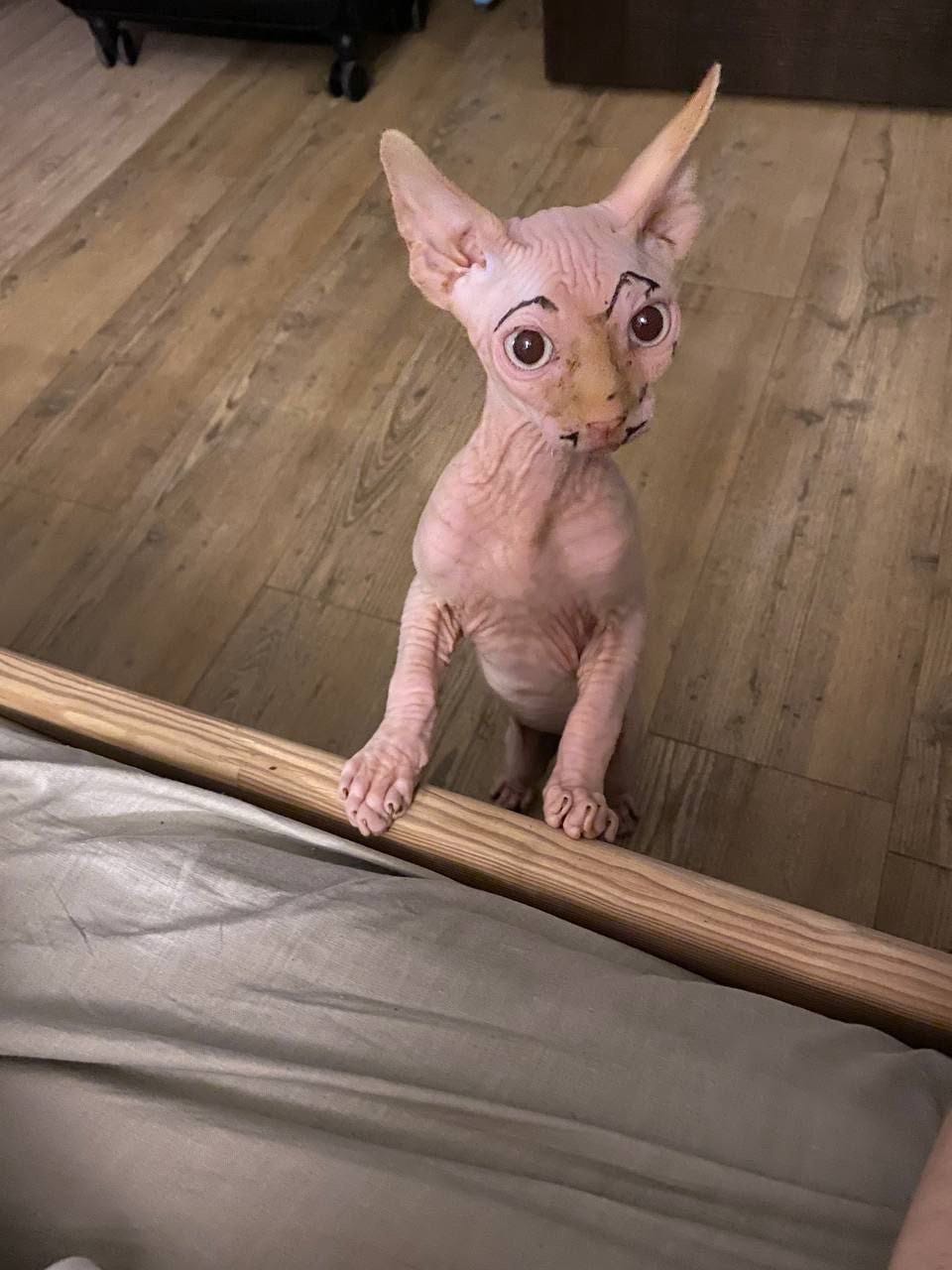
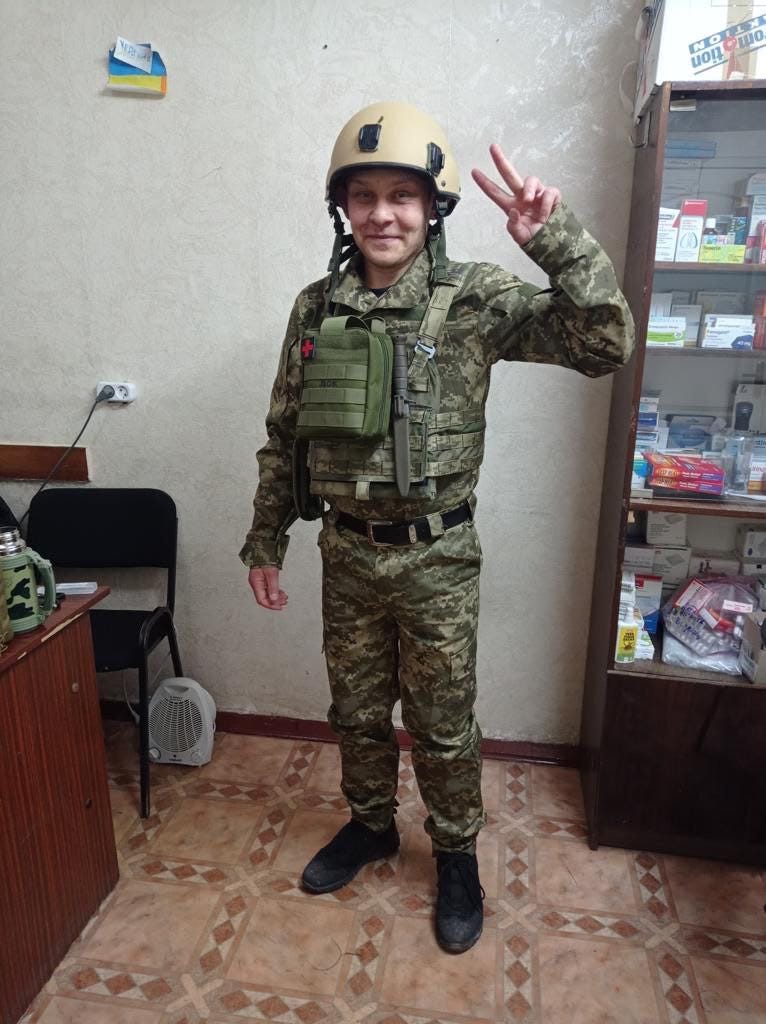
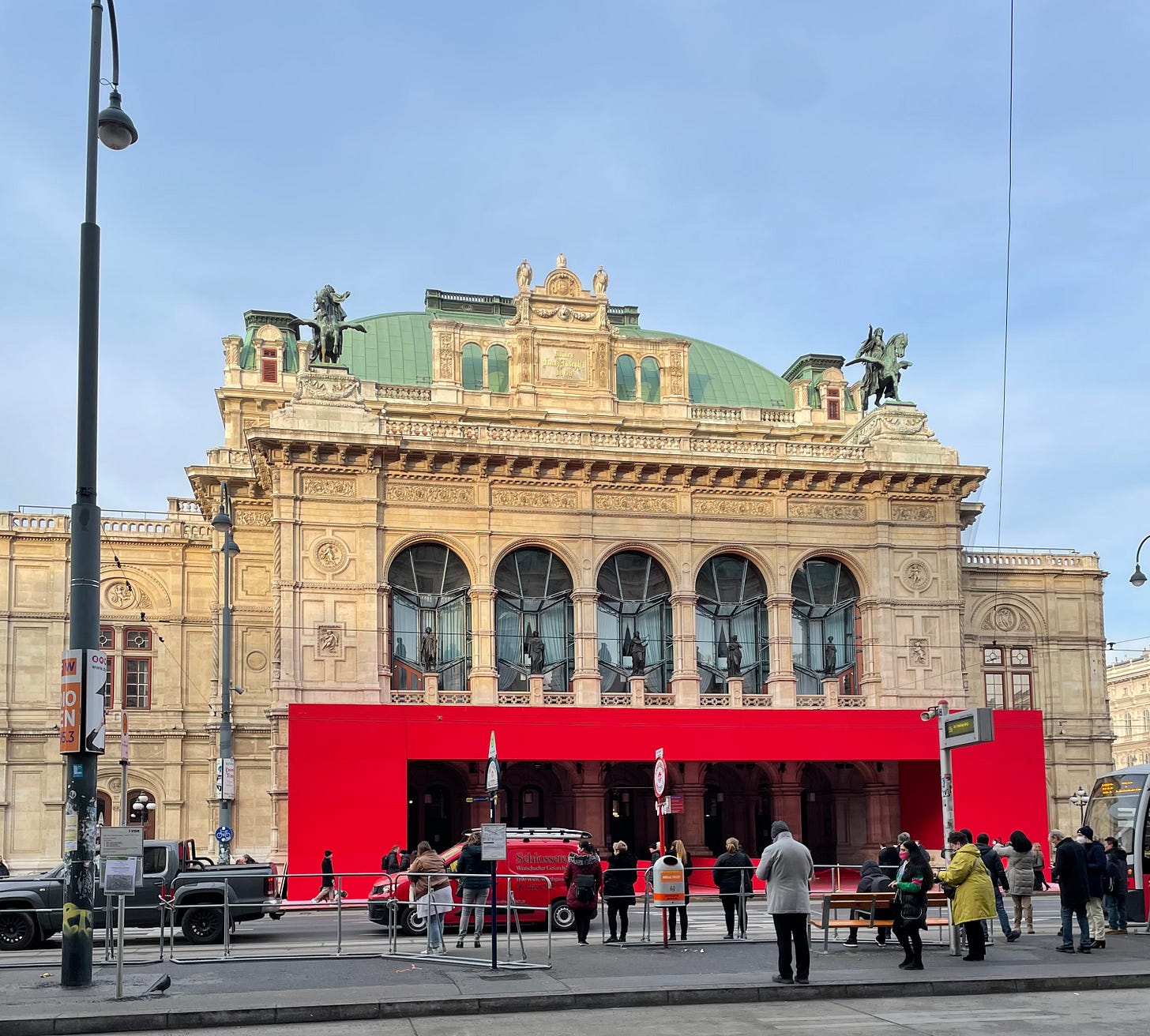
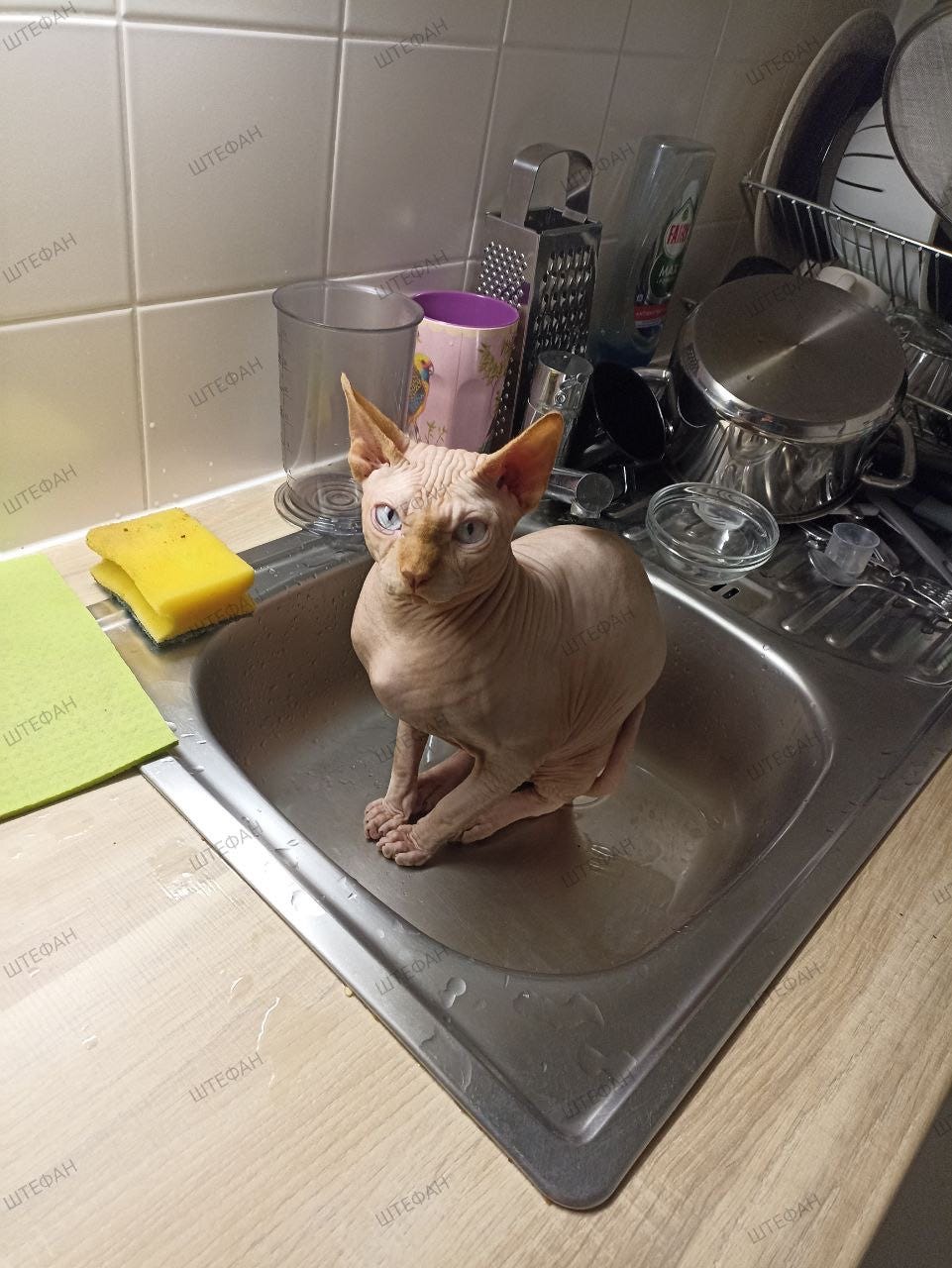



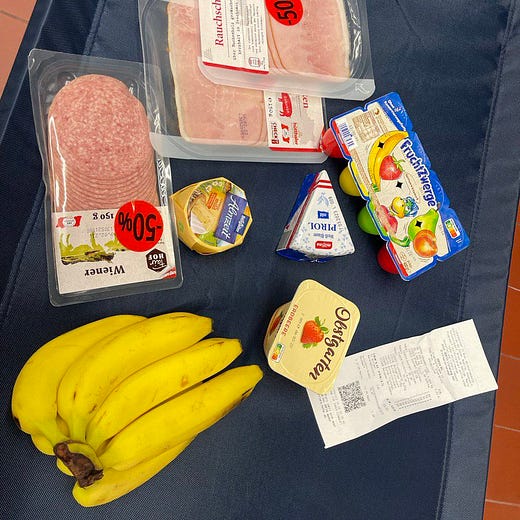
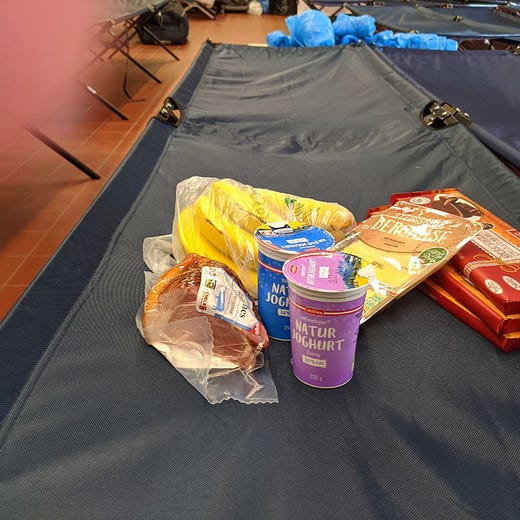
Another excellent post … but I have to ask: did someone draw eyebrows and whiskers on that cat?
Yesterday I sent the 5 HoferCrads directly as promised, just to let you know. Regina